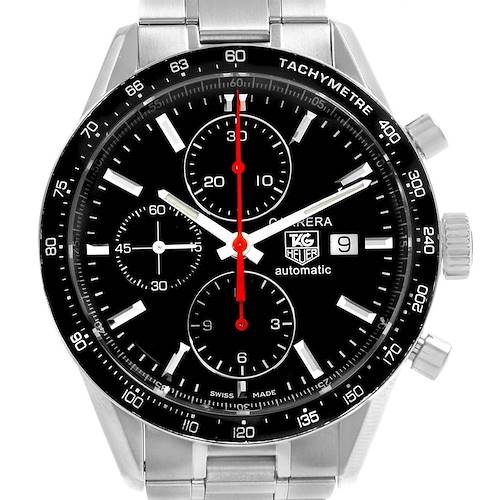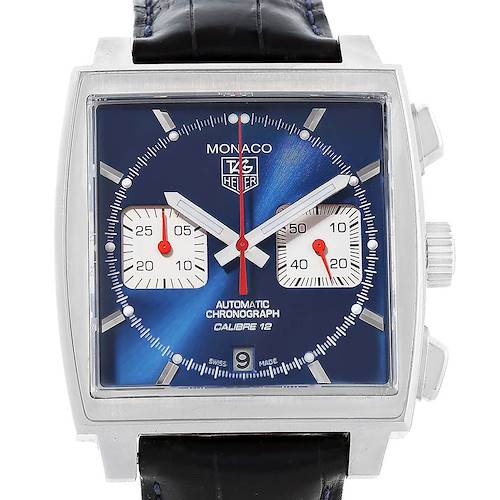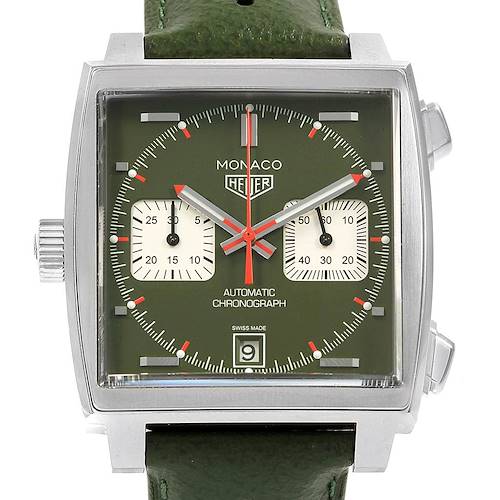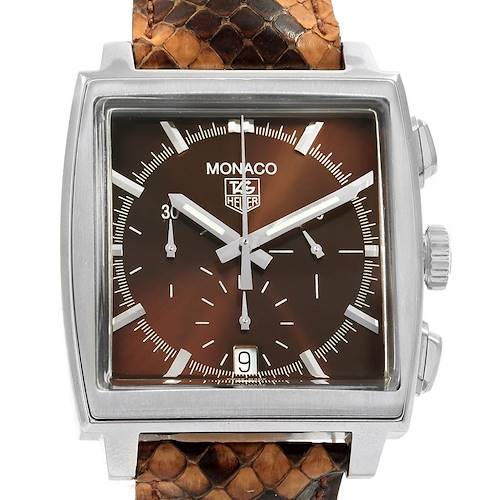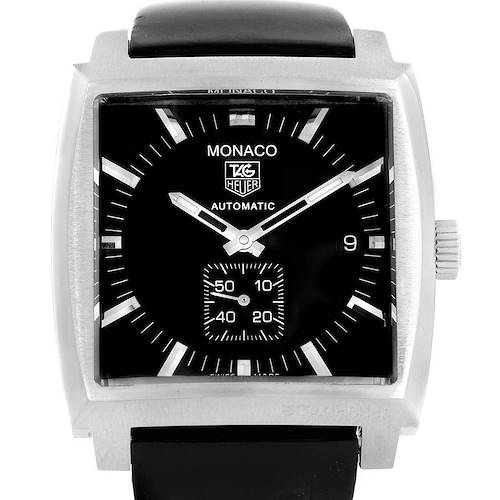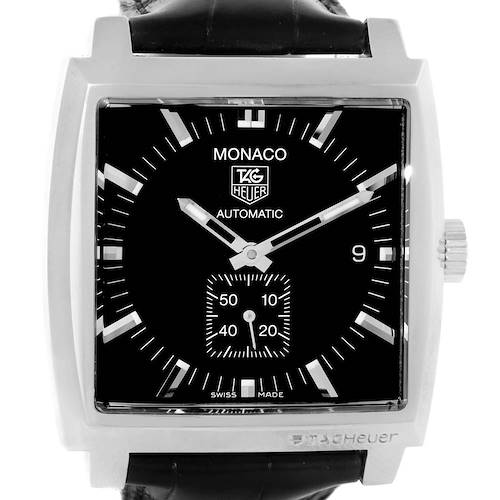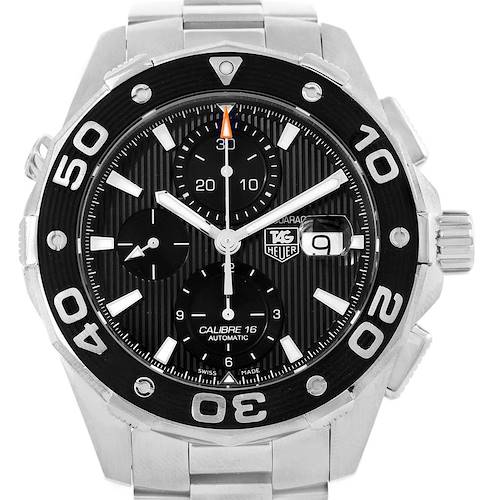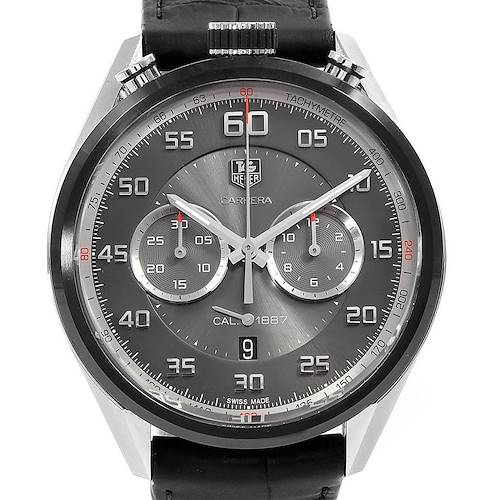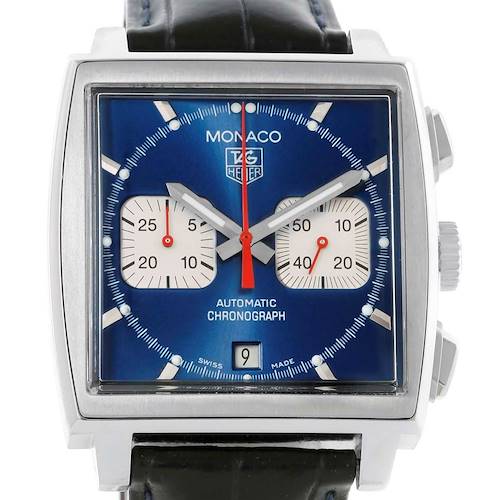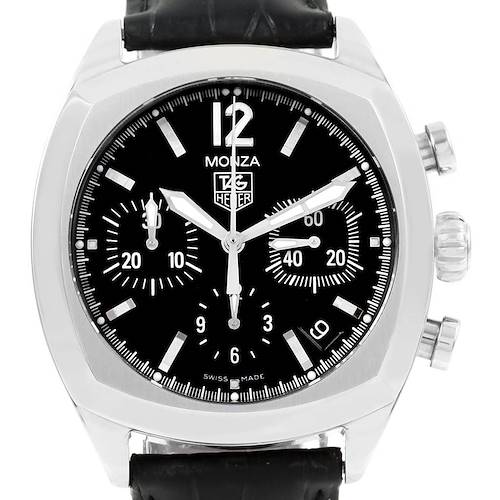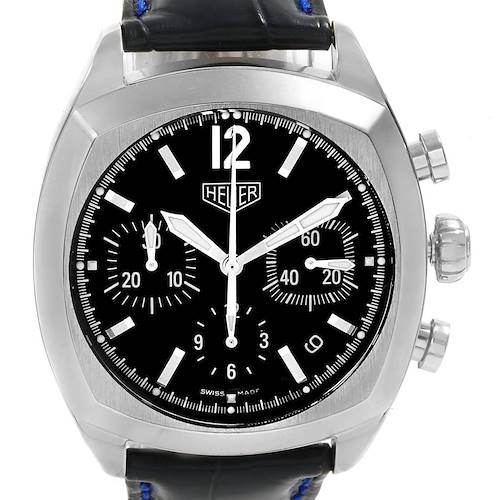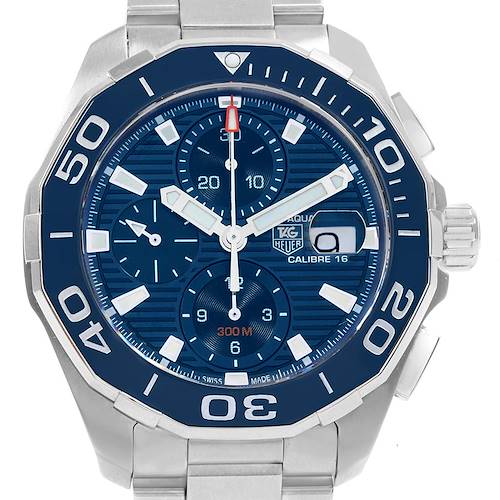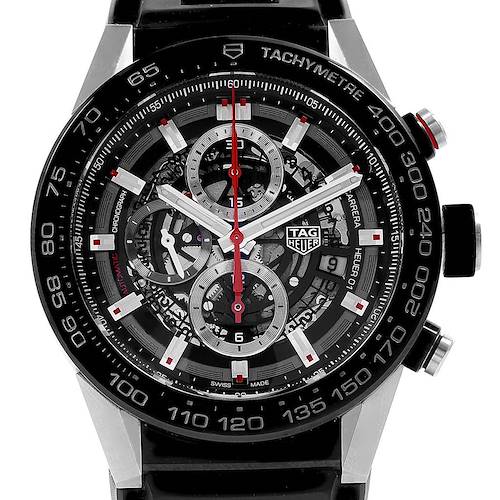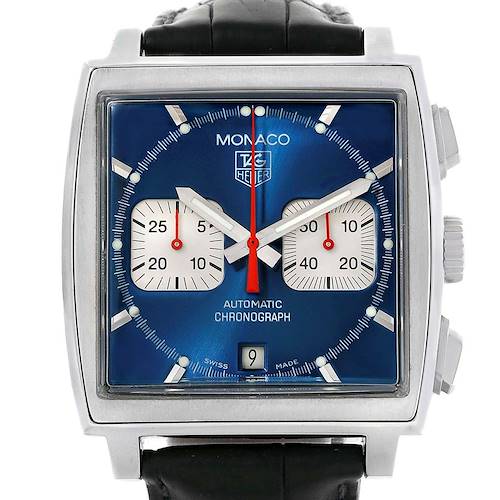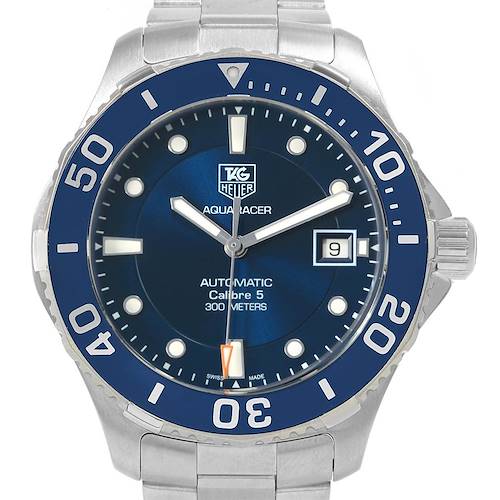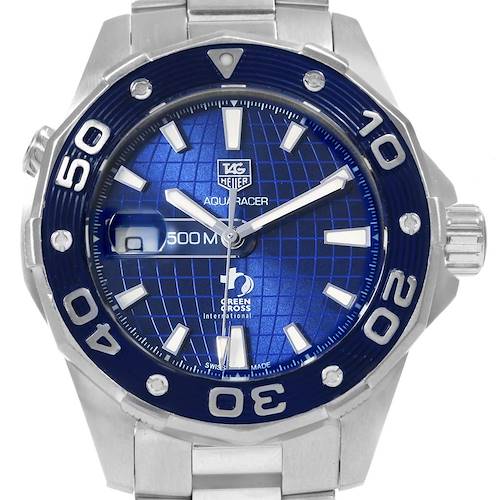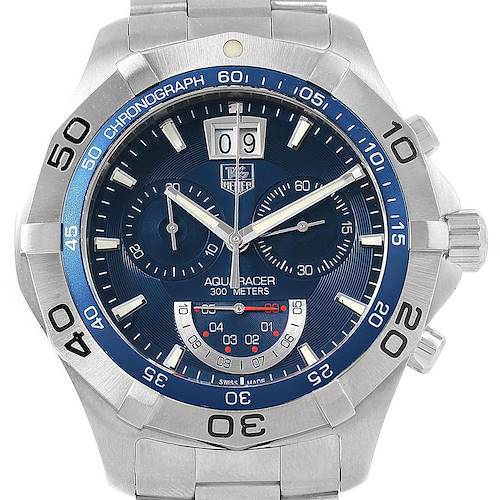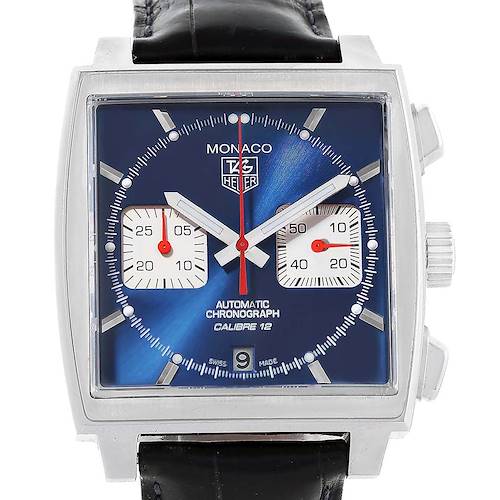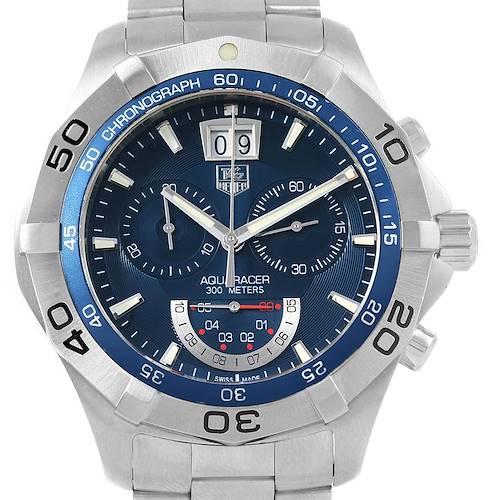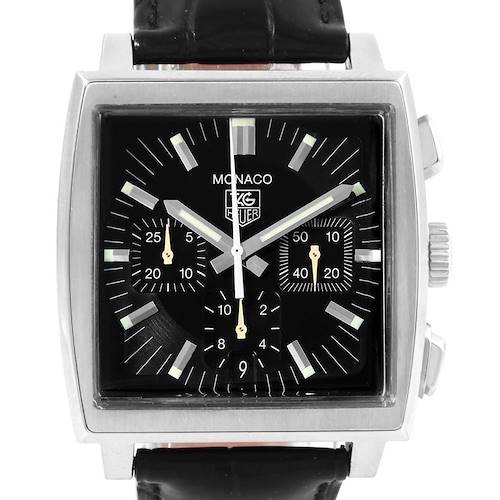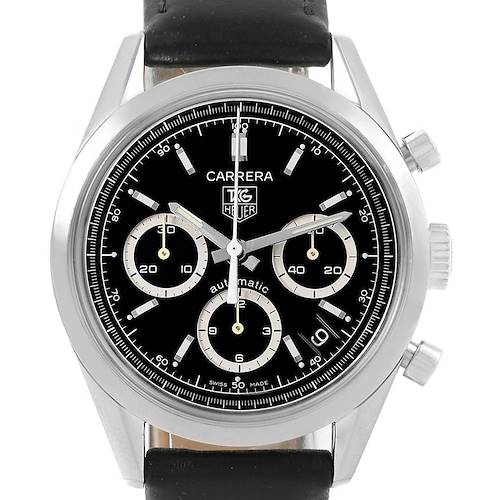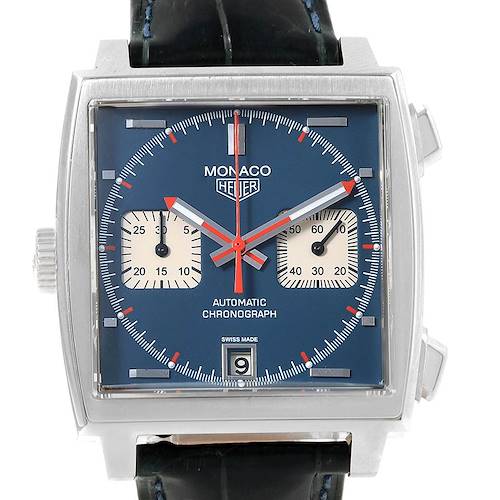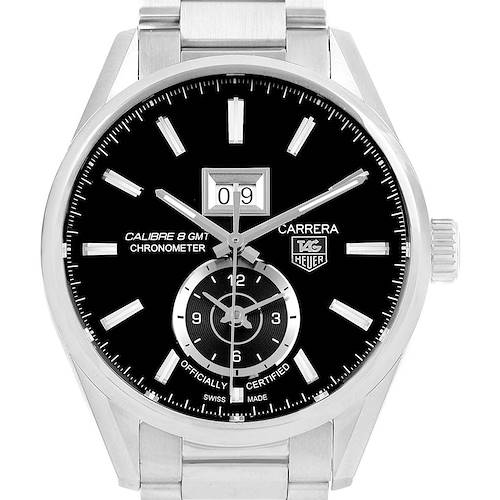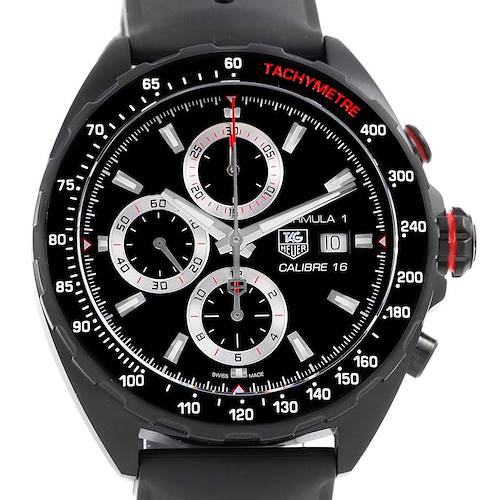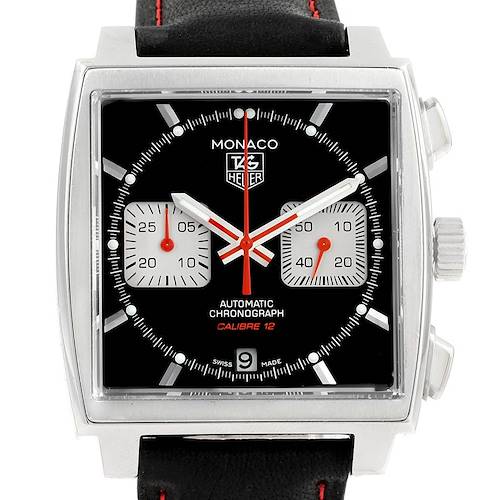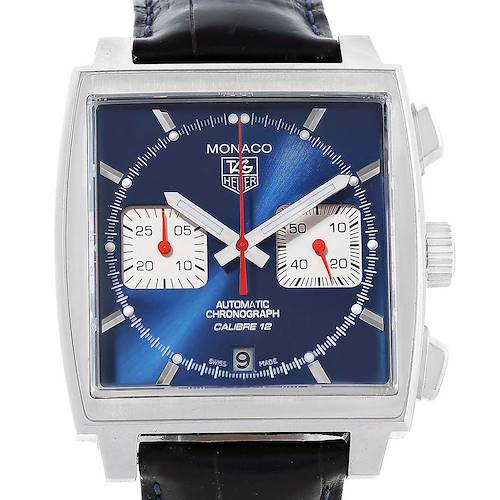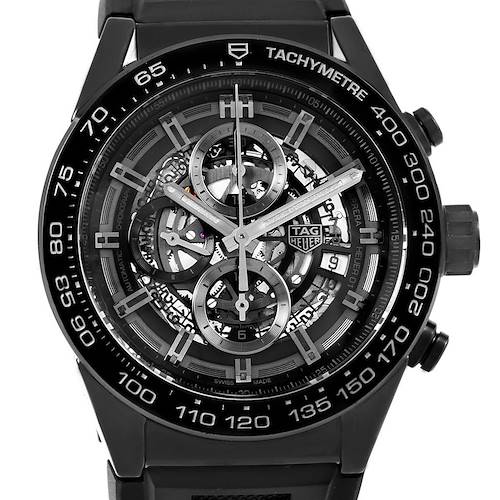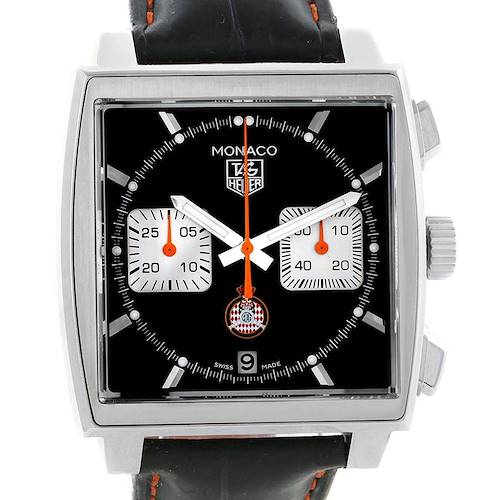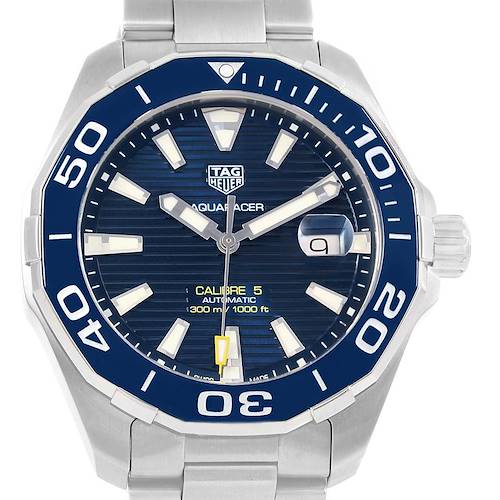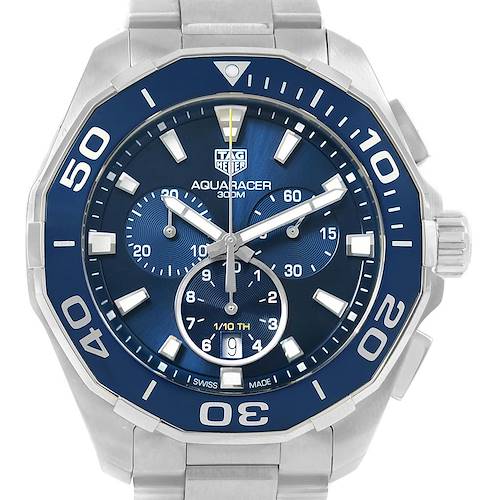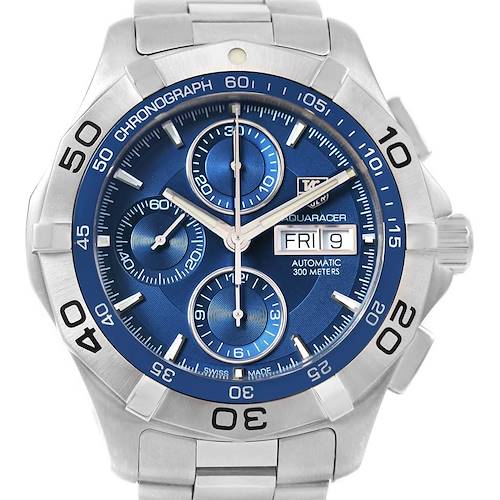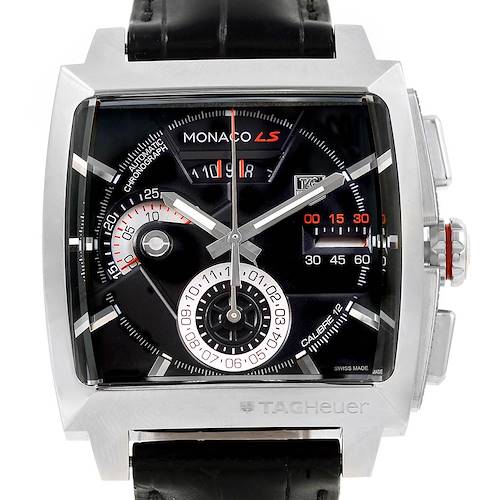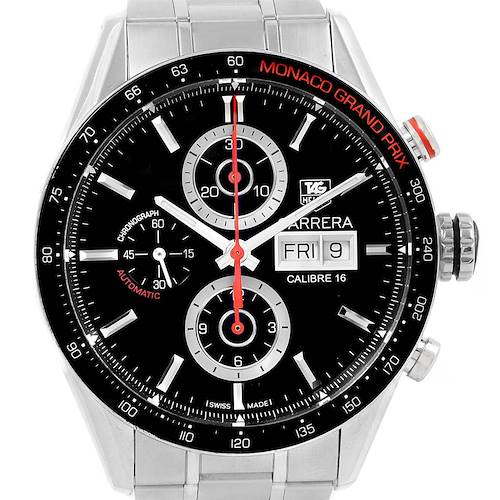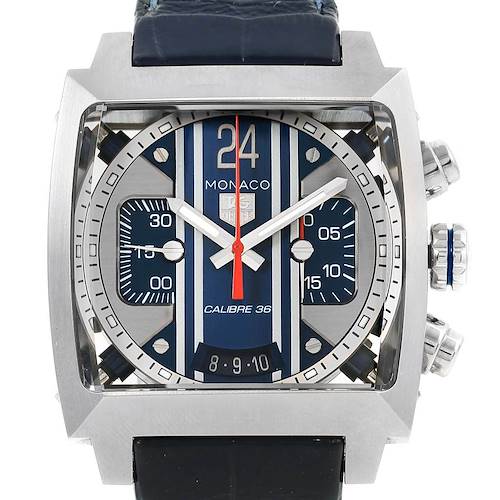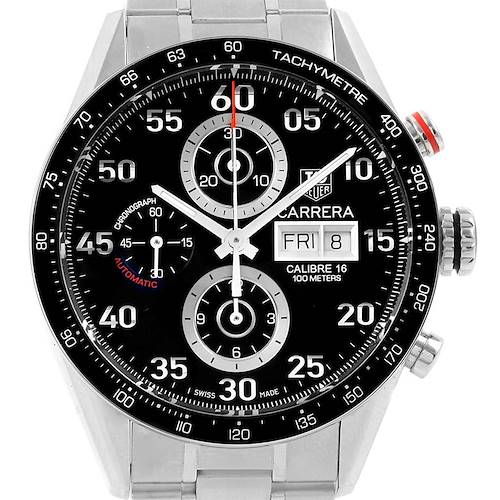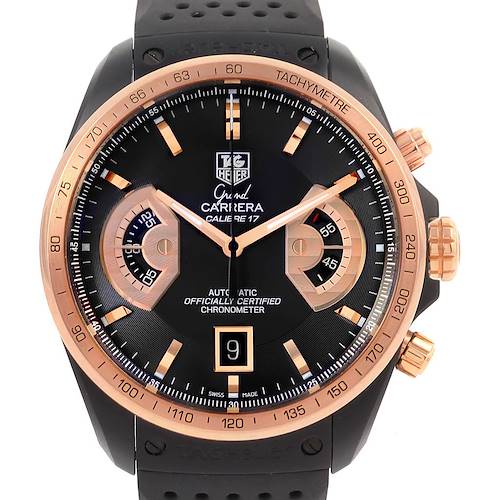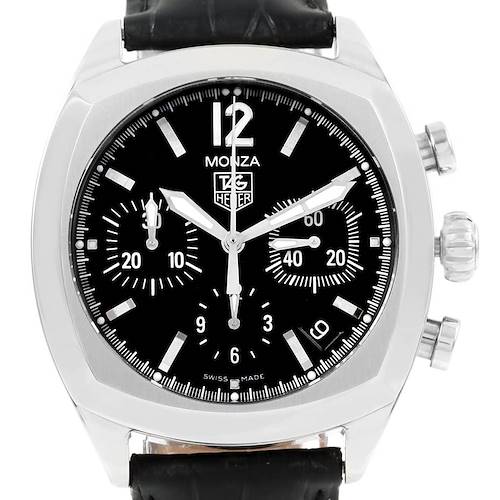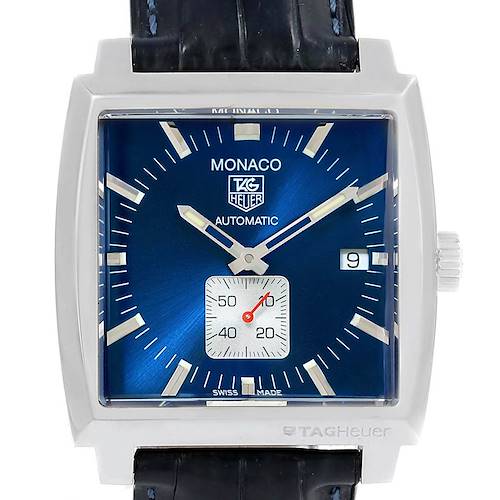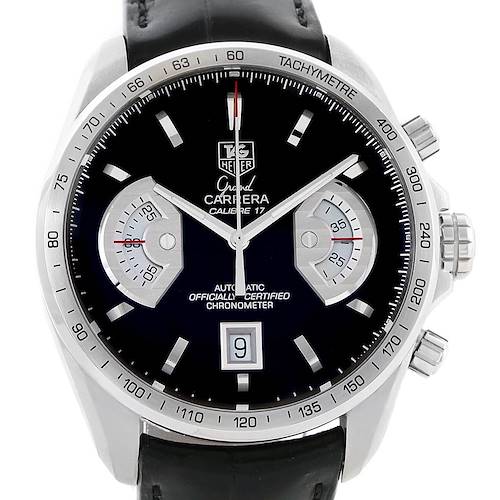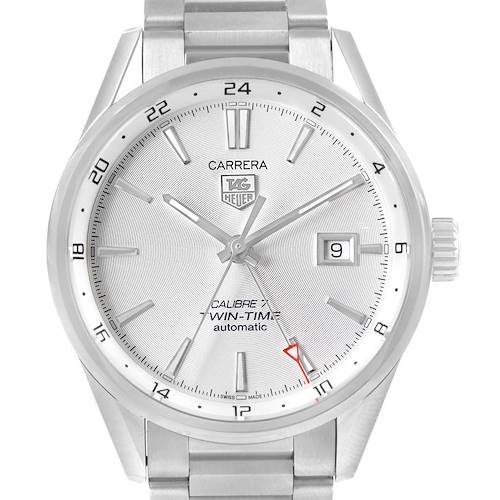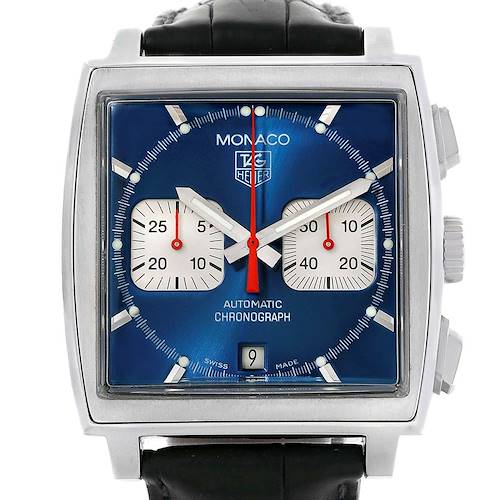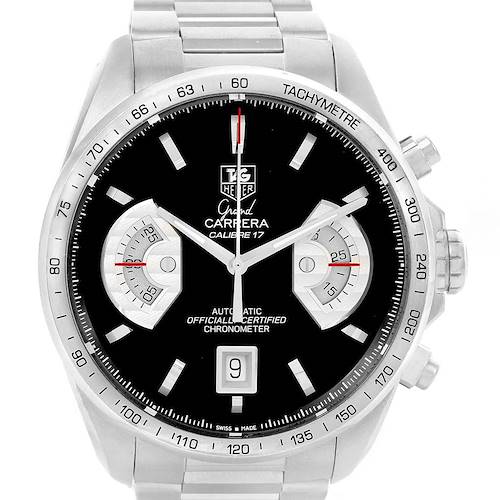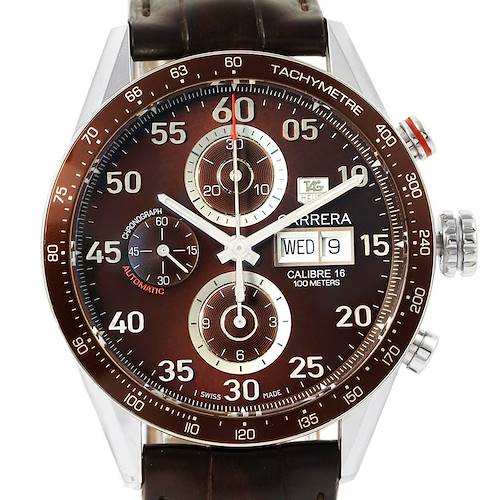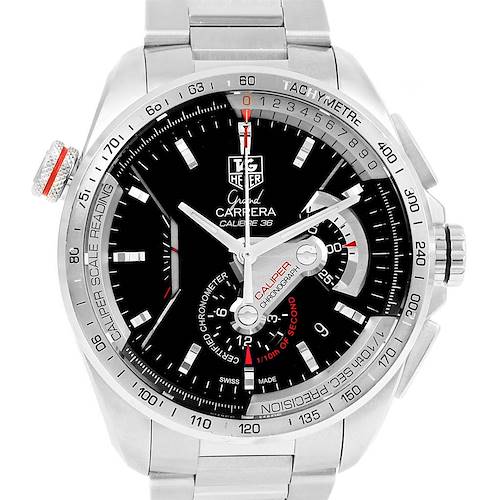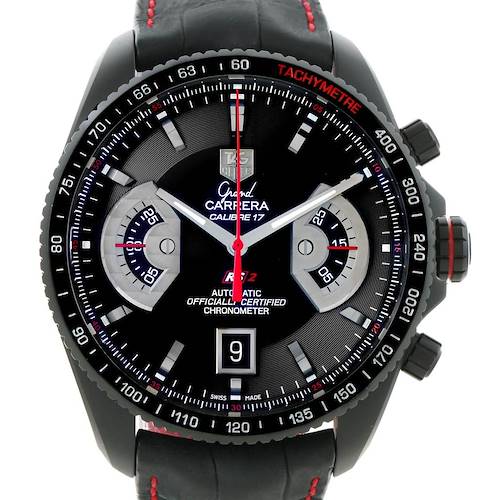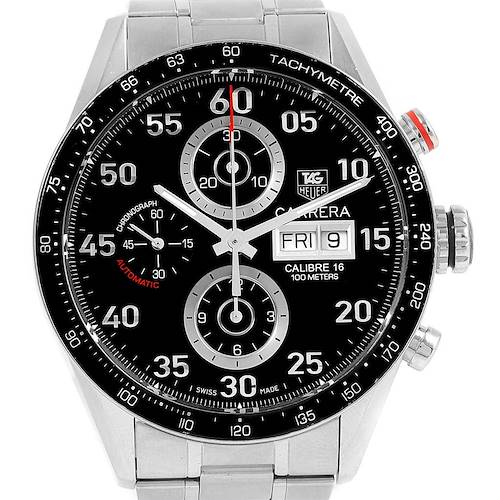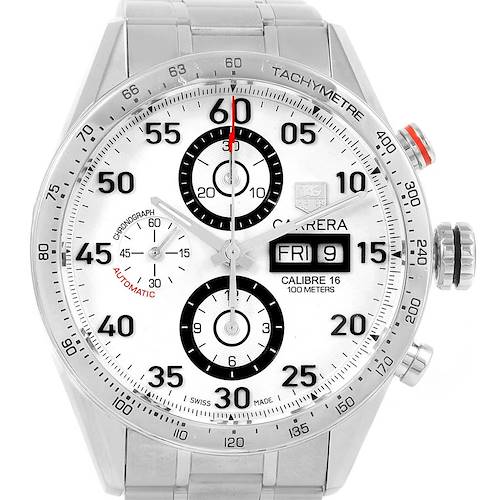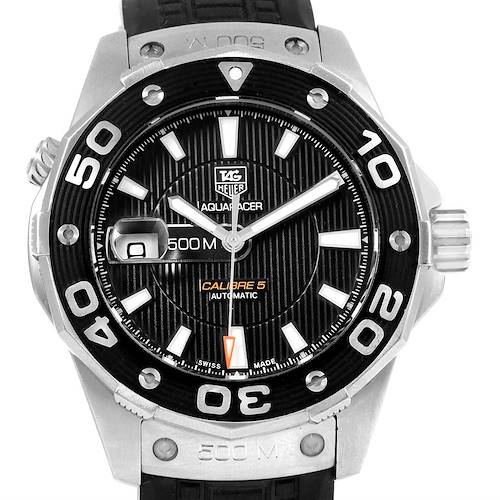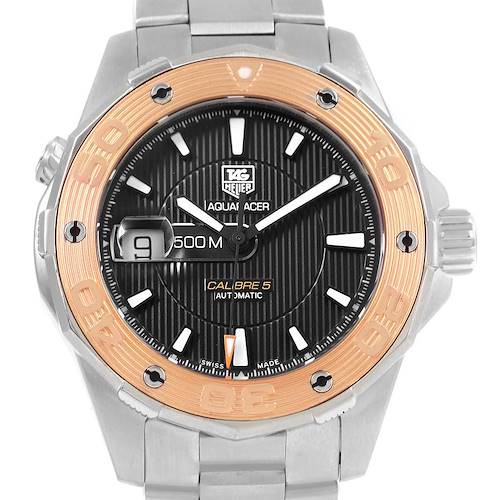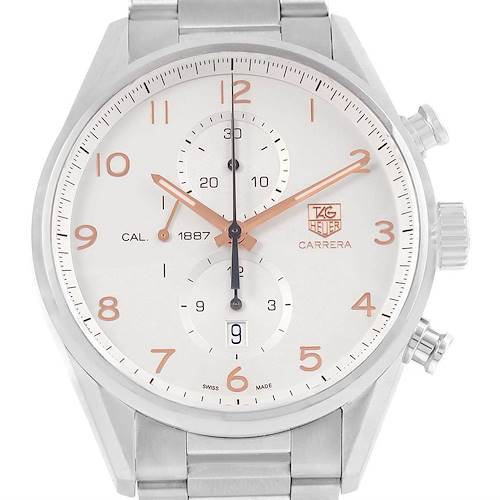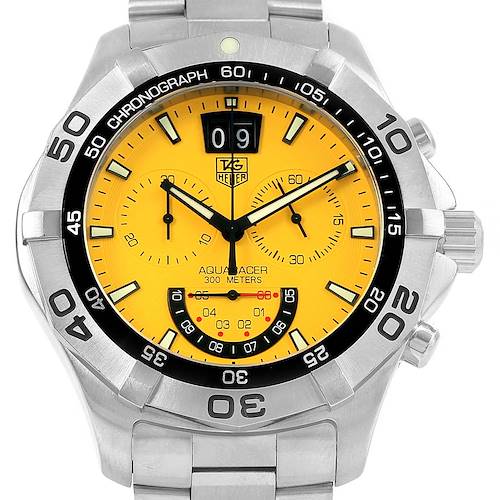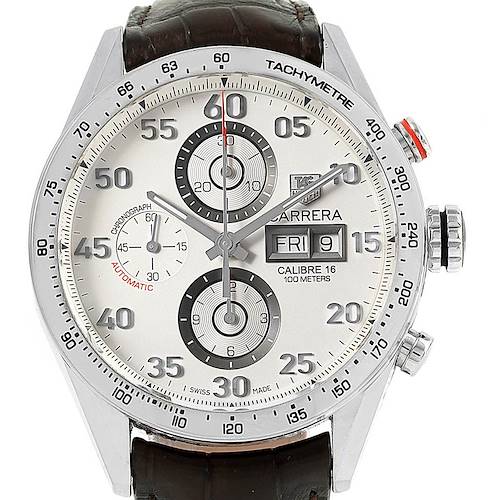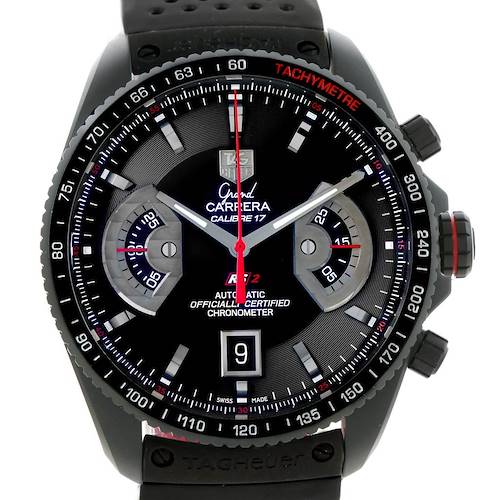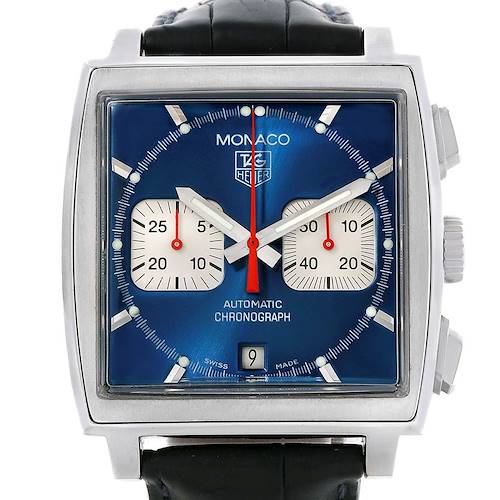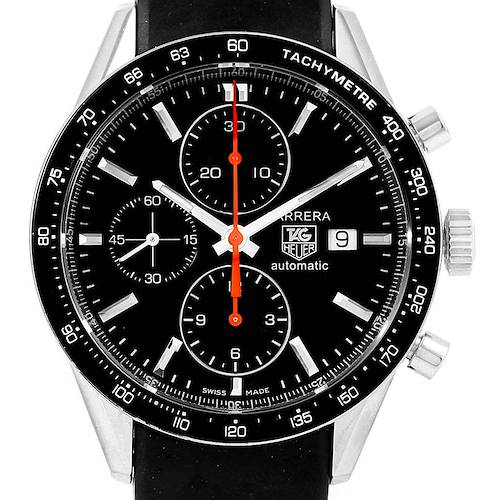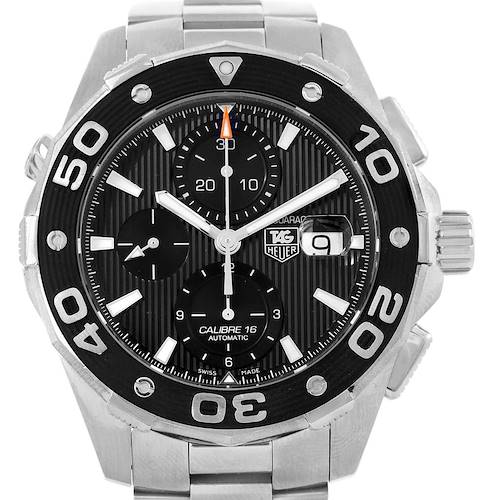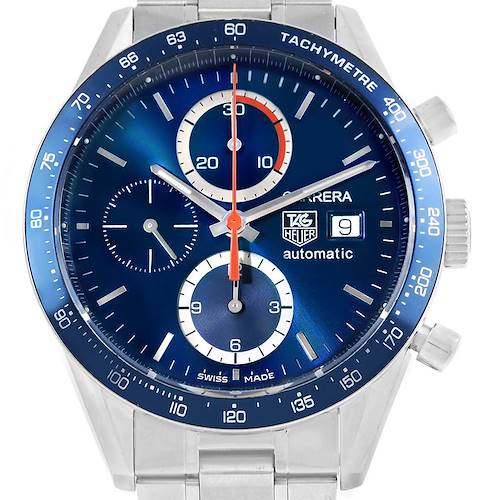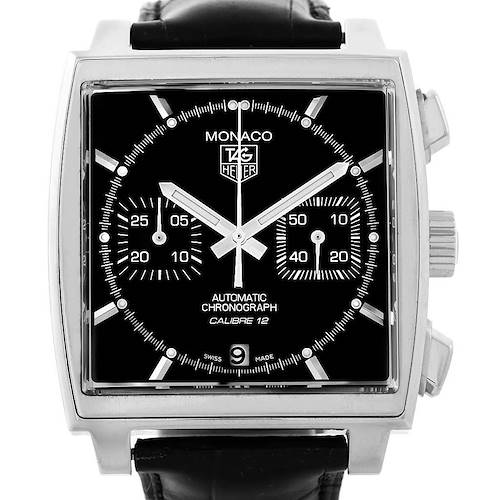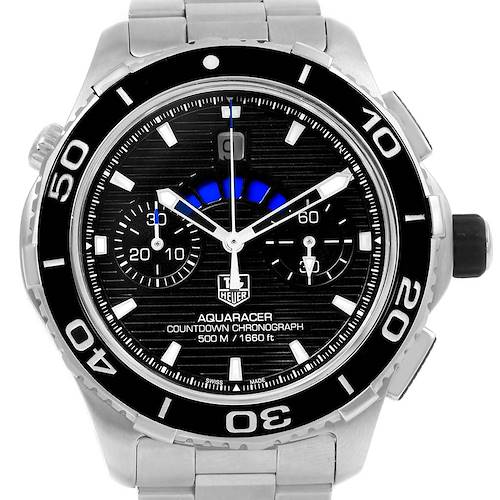- CALL US (404) 814-1814
- LIVE SUPPORT
- EMAIL US
-
WISHLIST (0)
-
CART(0)
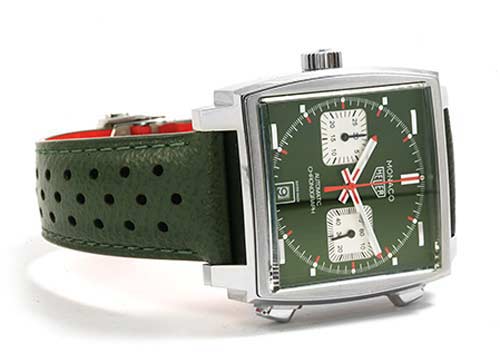
New Arrivals | Tag Heuer Watch Collection
1,381 MATCHES FOUND
SwissWatchExpo ARCHIVE - RECENTLY SOLD
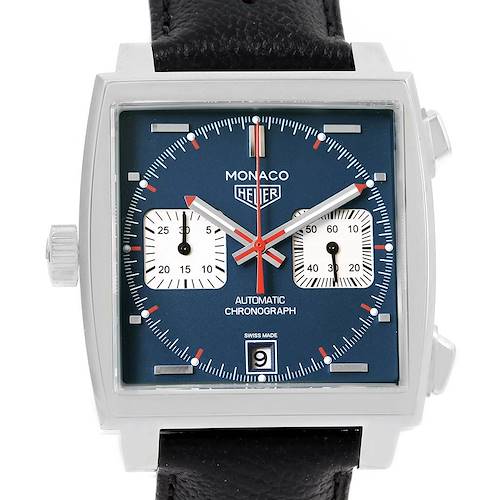
Tag Heuer Monaco Automatic Chronograph Mens Watch CAW211P
Tag Heuer Watches Collection
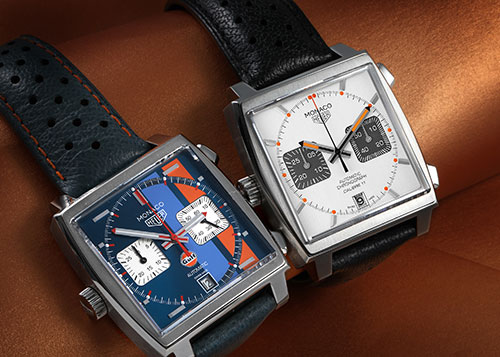
Few brands enjoy a close association to the world of motorsport as Tag Heuer. Established in 1860, the eponymous Swiss luxury watch brand is known for its contributions in the evolution of the chronograph, its connection to automobile racing, and its remarkable innovations in the watchmaking industry.
Among their many innovations are oscillating pinion, an invention which continues to be used in many chronographs to this day; and the world’s first automatic chronographs – the Autavia, Carrera, and Monaco – which continue to be part of their catalog today.
True to their company slogan “Don’t Crack Under Pressure”, Tag Heuer’s watches are both enduring and fashion-forward. Models like the Autavia, Carrera, and Monaco have earned cult status and continue to be sought after by the most seasoned collectors; meanwhile, recent collections like the Formula 1 and Aquaracer are highly popular among those who live life at full speed. Furthermore, Tag Heuer was the first luxury watchmaker that dared enter the smartwatch market, with their Connected series.
From classic chronographs, to contemporary avant garde pieces and refined models for women, Tag Heuer has a vast array of watches for every situation. Explore our selection of Tag Heuer watches at SwissWatchExpo.com.
A BRIEF HISTORY OF TAG HEUER WATCHES
The company had its beginnings in 1860, when Edouard Heuer founded Uhrenmanufaktur Heuer AG (or Heuer Watchmaking Inc.) in Saint-Imier, Switzerland. Heuer started his apprenticeship as a watchmaker at age 14, and built his workshop at the young age of 20.
Even in the early years of the company, Heuer’s focus was to create precision timepieces.
In 1882, Heuer earned the patent for his first chronograph. Five years later, he invented the oscillating pinion, a clutch that improves the engagement of chronographs, which continues to be used until today.
Heuer’s sons, Jules-Edouard and Charles-Auguste, took over the company when he died in 1892.
Throughout its history, Heuer and later Tag Heuer, has been linked with chronographs and timers.
In 1911, Heuer received a patent for the “Time of Trip”, the world’s first dashboard chronograph. Three years after, Heuer introduced their first wrist chronograph.
Heuer further demonstrated their dynamism with the “Mikrograph”. Introduced in 1916, it was the first stopwatch accurate to 1/100 of a second, and came with a dial that made the reading of 1/100th second increments simpler and more accurate.
Following these achievements, Heuer became the official timekeeper of several editions of the Olympic Games, and other major sporting events. The company’s split-second pocket chronographs were used as the official timekeeping devices in 3 consecutive Olympic events: Antwerp in 1920, Paris in 1924, and Amsterdam in 1928.
In the coming decades, Heuer strengthened their connections to the worlds of motorsport and racing, significantly contributing to their success.
In 1933, Heuer introduced the Autavia, a dashboard timer for use in automobiles and aviation (hence the portmanteau of “auto” and “aviation”).
In the mid-1940s, Heuer expanded its line of chronographs into both two- and three-register models, with a few including a full calendar function.
As Heuer became a leading producer of stopwatches and timing equipment, professional race drivers began to wear Heuer chronographs.
The Autavia chronograph was introduced in 1962, featured a rotating bezel and a tachymeter scale.
The Carrera chronograph was introduced the following year, designed by Jack Heuer himself, the great-grandson of Edouard. Jack’s intent was to build a clean, uncluttered, and ultra-legible chronograph that’s easy to read, hence the Carrera only came with registers and applied markers on the dial.
In the 1960s, automatic watches became the call of the day, and Heuer aimed to create the world’s first automatic chronograph movement.
Jack Heuer was aware that developing this movement is a colossal task, so he approached Willy Breitling, and the two leaders agreed to share the development expenses between their watch companies. The movement was given the codename Project 99, and was later on named Calibre 11 at the time of its launch in 1969.
To differentiate Heuer’s Calibre 11 watches from Breitling models with the same movement, Jack was inspired to create the now iconic Monaco model. It paired the world’s first automatic chronograph with a water-resistant square case. The stylish and colorful watch famously appeared on the wrist of racer and actor Steve McQueen in the 1971 film Le Mans.
Despite their success, Heuer, like many other Swiss watchmakers, encountered difficulties during the 1970s Quartz Crisis. This resulted in the company’s sale in 1985.
Tag Heuer was formed when TAG (Techniques d'Avant Garde), manufacturers of high-tech items such as ceramic turbochargers for Formula One cars, purchased a majority stake in the company. Tag Heuer continued the brand’s longstanding relationship with the automobile industry and eventually became the official timekeeper for Formula 1 racing in 1992.
In 1999, French luxury goods conglomerate LVMH purchased nearly 100 percent of Tag Heuer.
Through its entire history, Tag Heuer has distinguished itself as an innovator and pioneer in the industry – a legacy that continues to this day.
ABOUT THE TAG HEUER WATCHES COLLECTION
Tag Heuer has a vast collection of watches that include both enduring and forward-looking styles. For those who like vintage-inspired timepieces, Tag Heuer offers modern iterations of their iconic Heuer chronographs; for those who like the envelope pushed, Tag Heuer offers a collection of decidedly modern watches. Below are the models in Tag Heuer’s current catalog.
TAG HEUER AUTAVIA (1933)
The Tag Heuer Autavia is a sporty racing chronograph designed by Jack Heuer in 1962. It originally debuted in 1933 as a dashboard counter for airplanes and rally cars (hence the portmanteau of the words "automobile" and "aviation” for its name).
It was re-introduced as a wristwatch in 1962, ranging in design from classic round chronographs, to cushion-shaped sport pieces. In 2017, TAG Heuer re-introduced the Autavia through an online campaign. The “Autavia Cup” asked the brand’s fans to choose a vintage reference to be reissued and presented in Baselworld 2017. The Tag Heuer Autavia of 2017 revived the ref 2446 “Rindt”, and equipped it with the in-house caliber Heuer 02.
TAG HEUER CARRERA (1963)
The Tag Heuer Carrera is a racing chronograph designed by Jack Heuer in 1963. Heuer’s intent was to create a chronograph with a simple, clean dial that offered optimal readability. Keeping the design tidy, the original Carrera only had baton hands, applied bar indices, and a subtle minute track. Its name was taken from the famous Carrera Panamericana rally of the 1950s.
Over the decades, the Carrera has grown into a vast collection of both vintage-inspired timepieces and modern designs. The line offers chronograph editions, time-only and time-and-date versions, and models with skeletonized dials.
TAG HEUER MONACO (1969)
The Tag Heuer Monaco was launched in 1969, and became the world’s first automatic chronograph in a waterproof square case. Named after the prestigious Monaco Grand Prix, the racing chronograph was meant to showcase the world’s first automatic chronograph movement, the Caliber 11.
The Monaco hit the pinnacle of cool when racer and actor Steve McQueen chose to wear it in the 1971 movie, Le Mans. Today’s Monaco range still come in the recognizable square case, while incorporating design cues that are associated with speed and the world of racing.
TAG HEUER FORMULA 1 (1983)
The Tag Heuer Formula 1 is a collaboration between Tag Heuer and renowned international auto-racing federation, Formula 1. These watches are designed with high-speed motor racers in mind, so they are designed to easily slip over racing suits. Aside from incorporating concepts of speed and adrenaline, these watches also regularly use materials from motorsport industries.
TAG HEUER AQUARACER (2004)
The Tag Heuer Aquaracer is a collection of diver’s watches introduced in 2004. Inspired by Heuer’s first dive watches from the early 1980s, these are characterized by their 12-facet bezel with built-In riders for easy turning.
The first generation of Aquaracers offered a 300-meter depth rating; while the next generation, introduced in 2009, increased it to 500 meters.
TAG HEUER LINK (1987)
The Tag Heuer Link is a collection of stainless steel sports watches introduced in 1987, shortly after TAG acquired Heuer. The sporty everyday watch is streamlined to its purest form, with its unique S-shaped link bracelet being its most unique characteristic.
TAG HEUER REFERENCE and SERIAL NUMBERS
Like other watch companies, Tag Heuer uses serial and reference numbers to monitor their sale and manufacture.
The reference number refers to the family of watches and material that was used; while the serial number is unique to each individual timepiece. Reference numbers provide information such as the watch type, material, dial design, and movement. Serial numbers, meanwhile, play a crucial role in demonstrating the watch’s authenticity and ownership.
Every Tag Heuer is engraved with the reference number and the serial number on the case back. If the watch has a transparent case back, it is engraved on the edge of the case back. The bottom number is your watch’s serial number, while the upper number is the model or reference number.
Tag Heuer uses randomized serial numbers, while they have been using the below model or reference codes since 1992.
REFERENCE NUMBERS
Tag Heuer reference numbers have 13 digits, composed of letters and numbers:
ABC1234.AB1234
1 – The first letter refers to the watch type, categorized as follows:
W – Watch
C – Chronograph
S – Connected watch
2 & 3 – The second and third digits refer to the series or collection, categorized as follows:
R – Heuer Monza
V – TAG Heuer Carrera
AC – TAG Heuer Formula 1
AF – Aquaracer
AH – TAG Heuer Formula 1
AK – Aquaracer
AL – Monaco
AN – Aquaracer
AT – Link
AU – TAG Heuer Formula 1
AV – TAG Heuer
AY – New Aquaracer
AW – Monaco
AZ – New TAG Heuer Formula 1
AP/ AJ – Aquaracer
AR/ AS – TAG Heuer Carrera
4 – The fourth digit refers to the type of movement
1 – Quartz
2 – Automatic
3 – Manual Wind
5 – Automatic Chronometer
7 – Electro-mechanical
8 – Connected watch module
5 – The fifth digit refers to the size
A – Magnum Carrera
B – Magnum Carrera
C – Kingsize Carrera
0 – Large man
1 – Man
2 – Medium
3 – Woman
4 – Small Woman
6 – The sixth digit refers to the case material
1 – Steel
2 – Steel and plated gold or gold-capped
4 – Rose Gold
5 – Steel and gold
7 – The seventh digit refers to the dial and color type. As there are many variants and codes, these are not always consistent.
8 & 9 – These digits are formed by letters and refer to the bracelet and strap type
BA – Steel
BB – Steel and Gold Plated
BC – Strap with folding clasp; leather, alligator or nizza
BD – Steel and gold
BT – Rubber (with buckle; TAG Heuer Formula 1 series)
FC6 – Strap without buckle; leather, alligator or nizza
FT – Rubber
10 to 12 – These digits are randomized numbers referring to the bracelet and strap reference
COMMON QUESTIONS ABOUT TAG HEUER
Tag Heuer is a Swiss luxury watch brand renowned for its roots in making precision timepieces and its association with the world of motorsports. Here are some of the most frequently asked questions about Tag Heuer.
HOW CAN I TELL IF A TAG HEUER WATCH IS AUTHENTIC?
Constant innovation, quality, and excellent craftsmanship keeps Tag Heuer in its pole position as one of the big names in Swiss watchmaking. If you see any sign of imperfection on your Tag Heuer timepiece, it is likely a fake.
Unfinished edges, uneven polish, misspelled text, and even wrong markings and engravings are dead giveaways.
It is always advisable to do research beforehand so you can check if the details on your watch is in tune with the model’s features.
To guarantee the authenticity of a Tag Heuer watch, purchase only from a reputable retailer who can provide proof of authenticity.
DO TAG HEUER WATCHES HOLD THEIR VALUE?
Due to their heritage, reliability, and constant demand, Tag Heuer watches have excellent residual values. The chances of resale for Tag Heuer watches are typically high, thus keeping their value stable. There are Tag Heuer watches that hold their value better than others, particularly key vintage models from the Autavia, Carrera, and Monaco collections.
HOW OFTEN DO I NEED TO SERVICE MY TAG HEUER WATCH?
Your watch’s service frequency will depend on how often the watch is used and how well it is stored. Tag Heuer recommends that you have your watch and its movement fully serviced every 5 years to maintain its performance and accurate timekeeping. A full service includes rigorous testing of the timekeeping accuracy and waterproofing, to see to it that your watch is in excellent shape.
These are only general recommendations, as there can be signs that your watch needs maintenance sooner rather than later. Here are Signs It’s Time for Watch Maintenance.
WHERE CAN I HAVE MY TAG HEUER WATCH SERVICED?
Even robust timepieces like Tag Heuer need routine maintenance to keep their performance and value. At SwissWatchExpo’s state-of-the-art service center, we offer a full range of services, from basic maintenance to major repairs and restorations – all performed by expert watchmakers. Learn more about our rigorous Repair Services.
HOW MUCH WILL SERVICING MY TAG HEUER WATCH COST?
The service cost will depend on the model and material of your Tag Heuer timepiece and its current condition. At SwissWatchExpo, we provide repair and maintenance estimates free of charge. When you send us your timepiece, it will first be inspected by our master watchmakers, who will create a detailed cost estimate based on the condition of your watch, its history, and your request. Only after you approve the cost will we begin with the repair process.
BUYING A CERTIFIED PRE-OWNED TAG HEUER VS BRAND NEW TAG HEUER
Tag Heuer’s timepieces have an enduring appeal. Heuer’s glory days in the 1960s produced a range of both classic and forward-looking chronographs – the Autavia, Carrera, and Monaco, which have become all-time classics.
At the same time, Tag Heuer uses its rich history of watchmaking, and combines it with today's leading-edge technologies, to continue to provide innovative watch designs and next-generation technology.
If you are looking to include historic Tag Heuer pieces to your collection, then the pre-owned market is the place to source them. It is standard that authorized retailers exclusively carry current models. Meanwhile, the secondary market gives you a vast range of styles to choose from – including rare and vintage references, limited or special editions, or discontinued models that you will not find in authorized dealers.
Buying pre-owned is also more cost effective. Watches tend to depreciate the most right after it is purchased, so buying pre-owned means you avoid taking the hit of the initial depreciation, and are left paying the true market value of the watch. While some rare vintage watches do appreciate over time, the general rule is that a pre-owned watch will cost less than a brand-new timepiece.
Lastly, buying pre-owned doesn’t always mean having to buy older or discontinued models. If you’re on the hunt for current styles or want your watch to be as new as possible, the pre-owned watch market also offers models in mint and excellent condition. Sometimes, pre-owned watches are even kept unworn and are sold in their original packaging.
Whether it’s a vintage timepiece or a current production model, SwissWatchExpo commits to delivering our watches “like new” condition. Our master watchmakers never let a single watch leave our workshop until it runs and looks like new.
We believe that buying pre-owned gives our clients the maximum value possible. If you’re in the market for a Tag Heuer watch, our experts are happy to assist you in finding the right timepiece.


